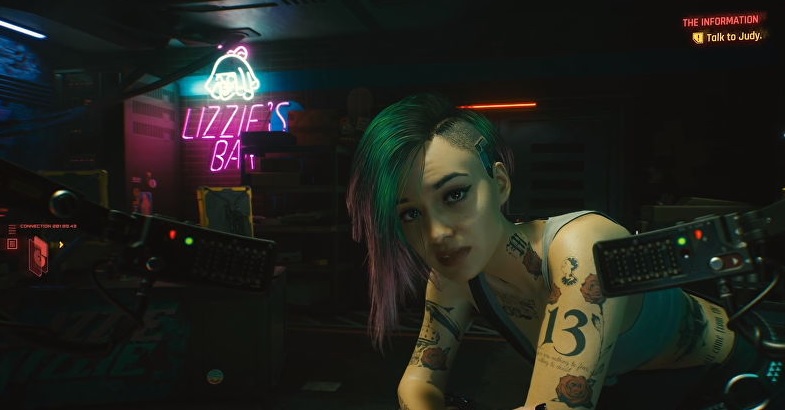The DICE Summit in Las Vegas gathers the most important creatives, game directors, and business types each year. This year’s theme is resilience. On Wednesday, Gabe Amatangelo gave a talk on lessons learned from leading Poland’s most famous game studio after the launch of game that wasn’t ready.
He starts by quoting the Wall Street Journal’s profile of Cyberpunk 2077. “Most companies die with a bad launch, this one actually came out stronger.”
Amatangelo, an American living in Poland, was tasked with Phantom Liberty, the expansion for Ccyberpunk 2077. He describes the role of a game director as, “A vision conductor, a team coach, and an ROI manager.”
There’s always some trauma that goes with a game launch, but this project was part of the national psyche. After Cyberpunk first shipped, Amatangelo found himself at the local coffee shop, where the woman behind the counter demanded, “CD Projekt—what happened?”
GB Event
GamesBeat Summit Call for Speakers
We’re thrilled to open our call for speakers to our flagship event, GamesBeat Summit 2024 hosted in Los Angeles, where we will explore the theme of “Resilience and Adaption”.
He tells the anecdote of the shower in his apartment not working. After weeks of messaging the landlord about repairs, Amatangelo visits in person. The landlord asks, “You work for CD Projekt, don’t you?” Yes. “I bought Cyberpunk 2077.” Oh? “I own a PlayStation.” Oh. What about the shower repair? “We’re working on it.”
The team experienced pressures and traumas inside the office, but also, outside. Amatangelo’s antidote was to motivate his team and focus on the good.
“Ideas are a [great] motivator,” he notes. They approached Phantom Liberty with a “sequel mindset.”
The studio gave itself a do-over, time to dream, and a decided on four core drivers for the game. (Fantasy Fulfillment, Believable World, V’s Purpose, RPG Cohesion) as the guiding principles.
Next, they implemented cross-functional teams, a technique that goes back to Valve’s production of the original Half-Life.

Even with strike teams, ultimate decision-making slows down the production. “The game director can be a real bottleneck.”
Amatangelo tried to duplicate the director role by appointing “Area Product Owner” for Narrative, Art Center, World Sandbox, etc. — with APOs doing sprint reviews and approvals.
“The idea was to distribute ownership, empower people,” and always be aligned, he says. Discipline leads act as quality checks. The “hows” while the APOs act as the “whats”
“There’s still going to be misalignment,” he cautions. In other words, a decision that veers from the game director’s singular vision. The solution is to plan for it. Producers would schedule in misalignment—ten to twenty percent of time spent going back for iteration.
At the end of the project, the team nominated five keys to making the production a success:
- Distributed Ownership
- Cross-Functional Teams
- QA Integration
- Playing the Game
- Directors’ Alignment
Amatangelo mentioned that inviting the quality assurance team into the process early, and involved in pipelines, was a success.
He also highlights the need for developers to play their game while it’s in development. “Playing the game helps. Take a step away and play it.” Finding the time is challenging, so Amatangelo scheduled three days out of every three weeks for devs to playtest — and made an event out of it.
Going through a rough launch is humbling, he says. Amatangelo, a veteran of BioWare, had previous experience with the aftermath of difficult games. In this case, “We were all willing to change.” Everyone at CD Projekt Red shared a purpose, a quest for redemption. “We were all in the trenches together. It felt like we were against the odds.”
Another key element required is trust. “Raising your hand for help,” he says, requires trust. “Game development is tough. When people give each other the benefit of the doubt … .” Which Amatangelo credits with a big part of “us being able to turn it around.”
“There was a chemistry as we were approaching it. We all saw the values. That’s a huge part of it.”
Amatangelo closed the talk by reminding an audience of the world’s greatest developers why they were there in the first place. The players. The most important measure of any team’s success. “Giving players what they want is a very important part of this.”
GamesBeat’s creed when covering the game industry is “where passion meets business.” What does this mean? We want to tell you how the news matters to you — not just as a decision-maker at a game studio, but also as a fan of games. Whether you read our articles, listen to our podcasts, or watch our videos, GamesBeat will help you learn about the industry and enjoy engaging with it. Discover our Briefings.

